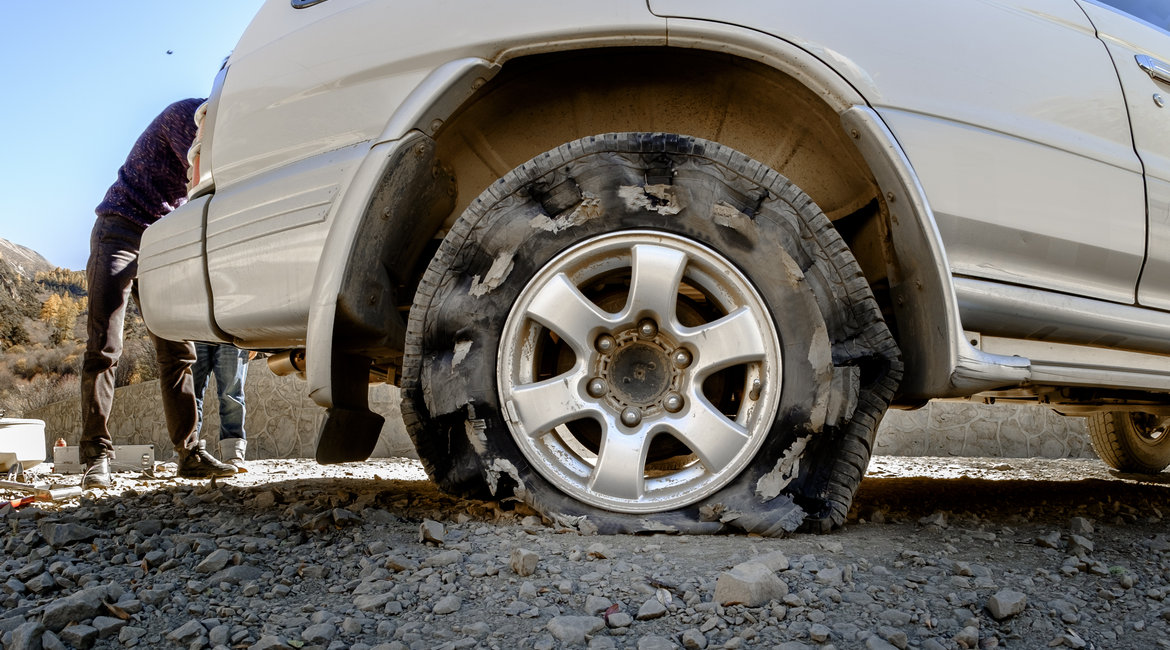What To Do During a Tyre Blowout?
You're driving on a road expedition with your family when it all goes wrong. The noises you hear are explosions. As soon as you stroll out of your car, you see that your tire has popped, and you are faced with one of life's most terrifying situations. A car explosion can happen unexpectedly and to anybody on the road, even though it is not typical. Given that a tire burst might result in a loss of vehicle control on the road, it's one of the most hazardous circumstances one can face with the threat of a rollover. As a result, comprehending what to do if your tire blows out and how to avoid such automobile tire disasters is vital.
Thankfully, through this blog, we aim to educate you on the reasons for the blow-out, followed by preventive measures you can take to avoid them. This is applicable to all tyres including Michelin tyres.

What Does a Car Blowout Mean?
A tire blowout happens when the tire's pressure is lost, causing the tire to burst or fail quickly. A sudden blowout can be dangerous to your car and its occupants due to its unpredictability and lack of control on the road. Blown tires can be caused by various factors, including overcrowding, underinflation, and model specifications.
What Does It Feel Like?
A wheel burst can be felt as a sharp jerk in motion followed by a pull towards the shattered wheel. Overloading your vehicle may result in tire blowouts, especially in lighter cars like sedans. Heavier vehicles, such as buses and trucks, may, on the other hand, have tire blowout as a result of the greater weight of dragging the car to one side. For passenger automobiles and commercial vehicles, high-quality tires such as Michelin and Continental tyres that are efficient and performance-oriented are frequently recommended.
What To Do?
If you observe a tire blowing out, the first thing you must do is remain cool. Additionally, using the steps outlined below may assist you in dealing with the situation.
- A quick blowout may be avoided by driving at a reasonable pace, generally less than 150 km/h.
- If your car starts to lose traction, try not to slam on the brakes too hard. Increased pressure will result in a loss of equilibrium, thereby increasing the damage cost.
- Avoid making sharp bends when driving on a blue tire and instead attempt to keep your car traveling straight.
- Without generating unexpected movements, carefully release your foot from the accelerator.
- Maintaining focus can help you stay cool while losing focus will worsen the issue.
Can I Prevent It?
You may avoid a tire blowout by increasing safety and investing in long-lasting tires. However, while it does not provide complete assurance, there are a few guidelines to avoid unexpected circumstances.
- Inspect the air force in your tires once a week to preserve their lifespan.
- If you find a deep hole in your tire, consider it as soon as feasible.
- Try moving in smooth areas instead of driving on roads with many holes and pits.
- Ensuring that the tire is a good company also makes a vast difference. Choosing a tire that provides high-efficiency performance is the best option. They improve your safety, but they also help you save money.
